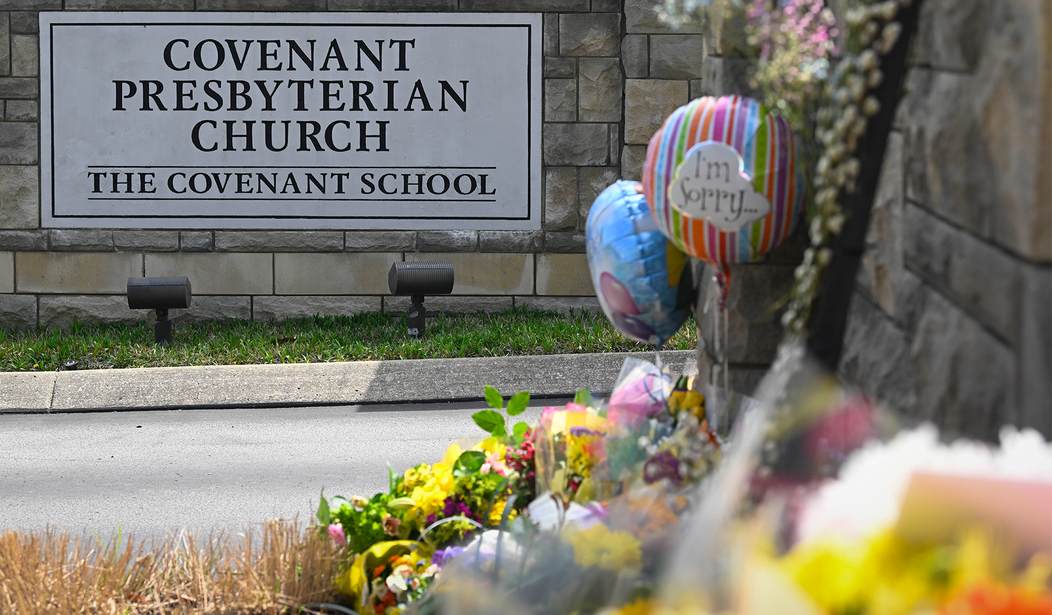Editor's note: This piece was authored by Tyler Cochran.
The seeds of wrath yield fruits of destruction. Whenever sown in the souls of men wrath cultivates hostility, dulls the mind, and hardens the heart. That’s why in the wake of tragedy, we need more thoughts and prayers, not less.
In response to the tragic school shooting at Covenant School in Nashville last month, talking heads — on both the right and the left — have taken to blaming each other for this wanton act of violence in furtherance of their policy prescriptions. But for many it’s not enough to take aim at the opposition: They have also decided to set their sights on “thoughts and prayers.”
Attacks have ranged from dismissal to open hostility to mockery. In an interview, Tennessee State Senator Heidi Campbell belittled thoughts and prayers in favor of “common-sense gun reform.” Similarly, Students Demand Action has claimed thoughts and prayers are “hollow.” But others like Murray State professor Brian Clardy have been much harsher in their criticism. Clardy, a self-identified Episcopalian, said that “thoughts and prayers do nothing to stop the violence” and that he likes to think God would say “to h—l with your thoughts and prayers.” Likewise, bestselling author Stephen King has tweeted Republicans should stick their thoughts and prayers “where the sun doesn’t shine.” But perhaps most disturbingly, popular progressive talk show host David Pakman in a now-deleted tweet mocked Covenant School for not “praying enough or correctly.”
This opposition to thoughts and prayers stems from a desire for action, specifically action in the form of “common-sense” gun control. Yet, there’s little evidence that gun control legislation works thanks to the complex factors that contribute to gun violence. Still, regardless of your opinion on the effectiveness — or ineffectiveness — of gun control, what’s certain is that in the aftermath of tragedy, we need prayer, not rash action.
Recommended
Detractors of prayer think it to be useless, a cowardly act of indifference in the face of suffering and malevolence. But in its stead, they offer only impotent legislation, vengeful militancy, and chaos. In short, they offer wrath. And this wrath — this outpouring of hatred and resentment — creates an environment that facilitates the kind of tragedy we are currently mourning.
The senseless violence of the Covenant School shooting kindled anger within all of us. And rightfully so. Amidst the helplessness and grief we all feel in the aftermath of the tragic loss of six innocent lives, anger is an understandable and just response. Yet, as the motives of the shooter come to light, it’s clear that when we let our anger guide our actions it often creates the conditions that perpetuate the very things it seeks to destroy.
While local police continue to investigate the motivations behind the shooter’s rampage, one thing has been made clear: Her rampage was fueled by wrath. The shooter left behind a still undisclosed manifesto that police claim reveals the shooter’s underlying resentment for having attended Covenant School in her youth. Whether the fire of her resentment was stoked by real or perceived threats to her self-identification as a transgender man remains unclear. Yet, no amount of personal suffering, real or imagined, justifies compounding that suffering by spreading it to others. And that’s the problem with wrath. It’s an all-consuming inferno that does not merely devour the person who expresses it but brings ruin to everyone in its path.
By tying up a person’s identity with their pain, wrath stokes a misanthropic hatred of the nature of being itself. A hatred that is all too often manifested in the malevolent mistreatment of others. The solution to this problem is not stoking wrath in others but reconciling our own hearts to the perception of hope. And that is the power of prayer.
To reduce prayer to a mere request for divine favor grossly understates its power. Prayer calms an anxious spirit, gives comfort to a vengeful mind, and facilitates purposeful reflection. This is because prayer is a communion with wisdom. Serving as a vehicle for wrestling with God over the tragedy of existence, prayer opens our minds to revelation and our hearts to inspiration. And this, in turn, can inform and empower positive action. In this way, prayer tempers our anger with hope, forging it into a righteous indignation that can be channeled into constructive action that builds people up, instead of tearing them down.
We are limited in our capacity to control the world around us. Try as we might, tragedy, suffering, and catastrophe will continue to plague our existence. Prayer acknowledges this by appealing to something greater than ourselves. While it does not absolve us of our duty to take action in the world and root out evil where we find it, prayer does humble us. And that is what is needed in the aftermath of tragedy, action born out of humble reflection that is oriented towards constructing a better future not action for action’s sake fueled by the worst parts of our anger.
In the aftermath of tragedy, we can either perpetuate chaos in our anger or humbly seek understanding through wisdom. So yes, offer thoughts and prayers to the victims, their loved ones, and all those suffering in the wake of this tragedy. And hold fast to hope.
Tyler Cochran is an editorial fellow for Young Voices, a law student at the University of Iowa, and a master’s student at Houston Christian University. He writes on religion, politics, and culture. You can find him on Twitter @tylercochran54.

























Join the conversation as a VIP Member